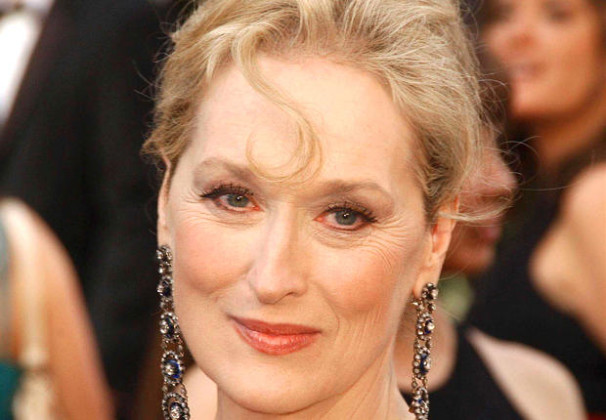I need to understand why people I love and admire no longer want to be associated with the cause that saved my life.
Dear Ms. Streep,
Allow me to start with a cyber-curtsy, which I believe is the protocol when addressing a queen such as yourself. There are no words to describe the depth of my admiration for you as public person and an actor.
Last January you proudly proclaimed that, like Emma Thompson, you are a “rabid man-eating feminist.”
But now, you have made the statement that you are rejecting the label of “feminist” in favor of the term “humanist” because you are “for nice easy balance.”
While I respect your decision, it would be very helpful for all of us in the feminist community if you could tell us about what led you to this decision.
Or to put it more succinctly, I would very much appreciate it if you would grant me or another writer in the feminist community an exit interview.
I promise, this is not an attempt to bring you back into the fold. And I, for one, swear that I will not lecture you on why you should identify yourself as a feminist.
I am not going to lie to you and tell you that all feminists will respectfully listen to your answers and refrain from unkind responses. But I promise that there will be no hostility from me.
Losing feminists has become personal to me. My daughter, whom I have raised to be fierce and kind and all of the things that make for a good feminist, will not identify as a feminist. And she refuses to believe that I am one either.
Like my daughter, you are clearly a feminist. You are lobbying for the Equal Rights Amendment. You are arguing for equal pay, and you call out sexism in Hollywood. So I need to understand why people I love and admire no longer want to be associated with the cause that saved my life.
This is pretty earth-shattering news to me, but more importantly, to the feminist community at large. It is like the Pope announcing that he has decided he isn’t comfortable with the label of Catholic anymore and prefers to be thought of as a “facilitator of religious experiences.”
Because this is such a big deal, if you don’t tell us what you are thinking, we are going to speculate. And that will undoubtedly do a lot of harm.
Losing you is heartbreaking, as our community needs more diversity when it comes to age. We need older women who are willing to share the wisdom they have learned from hard experience.
Recruiting is not going to be easy. I am hoping women like Viola Davis and Oprah will become active in our community. And of course, we would all love it if Michelle Obama became an elder in our community once her career in the White House is over.
But before we can recruit, we need to know if there is something about our community that makes wise women of a certain age unwilling to associate with us.
If you’d grant me an exit interview, here are the questions I would like to ask:
1) Are you distancing yourself from feminist ideology and causes or the feminist community?
2) Do you feel pressured to shy away from feminism? And if so, where is that pressure coming from?
3) When you were asked if you were a feminist you answered: “I am a humanist, I am for a nice, easy balance.” Can you tell us more about what you meant by that?
4) In the same interview where you shed your feminist identity, you said that you believe that being ladylike is underrated. You went on to say: “Grace, respect, reserve, and empathetic listening are qualities sorely missing from the public discourse now.” Are those qualities that you feel are missing from the discourse within the feminist community?
5) Do you feel like there are qualifications for being a feminist that you do not meet? Are there policy positions taken by feminists that you just cannot support? Are you having a hard time mastering the secret handshake?
6) Do you believe that your experience and thoughts as an older woman would be valued in the feminist community? In other words, do you believe that the feminist community holds its elders in high regard? Do we need to lose the term “crone?” (Please say yes.)
7) When you were asked about combating sexism, you said that men should look around and feel the absence of women in spaces of power and want to correct that. I agree with you that it would be a wonderful thing to have happen. But right now, a lot of guys seem grateful for our absence. Getting men to want us, to feel a need for us in their structures of power is a very hopeful strategy for ending sexism. Do you think it is our best strategy and do you have a back-up plan?
8) Was your decision influenced by feminist responses to women like Beyonce and Patricia Arquette who have chosen to identify as feminists or speak out on women’s issues?
9) What do you think that humanism can give your to granddaughters and great-granddaughters that feminism can’t?
Let me close this letter by thanking you for all of your years on the front-lines of the fight women’s rights. And thank you for acting like a feminist even when you stop calling yourself one.
Lynn Beisner writes about family, social justice issues, and the craziness of daily life. Her work can be found on Role Reboot, Alternet, and on her blog: Two Parts Smart-Ass; One Part Wisdom. You can find her on Facebook and Twitter.
Related Links:

